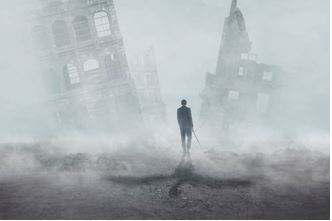Capriccio at Garsington
Images taken from the Garsington Opera website
This is the last opera written by Richard Strauss, with a German libretto by Clemens Krauss and is unlike any of his other operas. It is more like a ‘conversation piece for music’ where the Countess has two suitors, Flamand and Olivier, representing music and words. That is the context of the arguments and discussions that run throughout this opera. The question is, what is more important, Music or Word - or should it be Word or Music - and which one of the suitors will take precedence in the heart of the Countess?
It is an opera within an opera and deals with the serious subject of the relative importance of music, poetry, dance and theatre. It is full of some of Strauss’s most glorious music, culminating in the Countess’s sublime closing aria, dealing with her choice of suitor and asking ‘Is there any ending that isn’t trivial’.
The suitors are sung by the young British tenor, Sam Furness, as the Composer and the Irish baritone, Gavan Ring, as the Poet, Olivier. They are at the core of the musical story, breathing real life into the evening’s proceedings. Overall, the cast is outstanding, with the baritone, William Dazeley and the mezzo soprano, Hannah Hipp, singing beautifully, particularly in the sextet. Andrew Shore is an outstanding Theatre Director, always centre stage and in singing the aria ‘Gesture and expression is everything’ he acts in this way as well. Graham Clark swaps his Wagner Loge for Monsieur Taupe and is a luxury casting.
However, the surprise of the evening was the Countess of Miah Persson, who sings wonderfully. Having been indisposed for the dress rehearsal, she took a short time to grow into her role, singing majestically, particularly in her closing aria.
Tim Albery’s new production is a perfect fit for Garsington, in a set that swaps the old with the contemporary, as the arguments rage between Music and Word and 18th to 20th century. However, occasionally there was more need for ‘Mediterranean passion’ rather than a British ‘stiff upper lip’.
The evening’s proceedings are beautifully controlled under the baton of Garsington’s Music Director, Douglas Boyd, who constantly reminds us of the rich texture of Richard Strauss’s outstanding score in this, his last opera.
The world premiere of this opera was in 1942 Munich. There were no bombs falling in Garsington, other than the sound of applause at the end of a wonderful evening.







